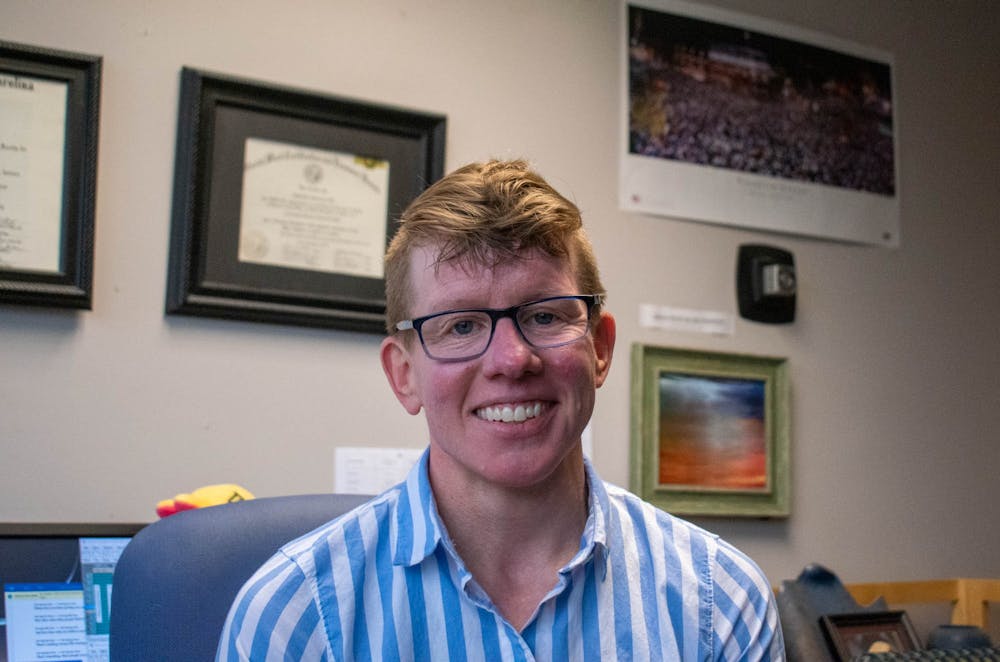Avery Cook recently became the director of UNC Counseling and Psychological Services.
Staff writer Holly Adams sat down to talk with them about their career and hopes for the future of CAPS. This interview has been edited for brevity and clarity.
The Daily Tar Heel: What positive changes have you seen at CAPS in recent years?
Avery Cook: One of the positive changes we've had are two programs that we started that have been really impactful. The first is our multicultural health program. It is a group of our staff who are focused on work with BIPOC students on campus. They do a ton of outreach, they make really great connections with students and they offer really innovative programming.
We've also started an embedded counselor program with some therapists that are housed in different schools and programs on campus, like the pharmacy school and law school. They get to know their students really closely, get to know those programs, get to know the stressors that are involved.
Another initiative that we launched last year was a telehealth option within our service, so that folks can access therapy, nights and weekends during non-traditional hours. Lots of students are busy between 8-5 when we're open, but they would still really like to engage in therapy, so we want to make sure they have access to that.
DTH: You mentioned that the needs of students have changed since the time you've been here. How have they changed?
AC: All kinds of ways. We never used to do telehealth before or Zoom sessions. I think students now want to make sure that they have access pretty immediately. So not just having access in terms of being able to walk in and talk to somebody but being able to call CAPS at 2 in the morning and talk to a therapist.
DTH: What more can the school do, in addition to CAPS’ services, to support students’ mental health?




